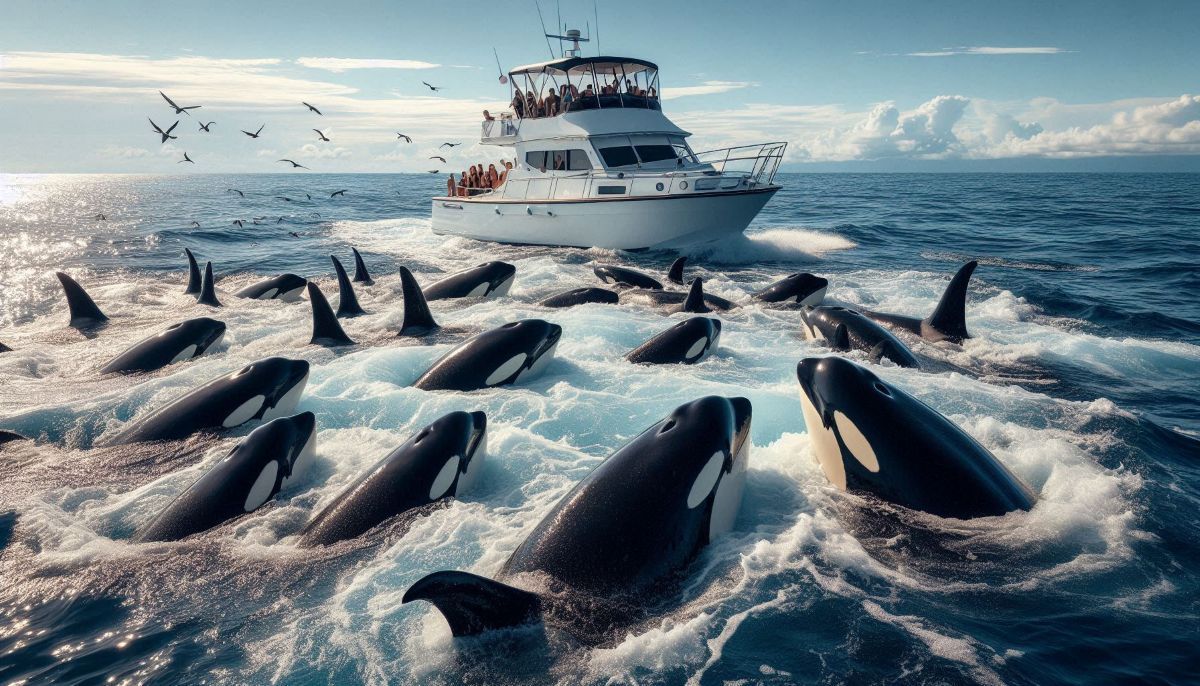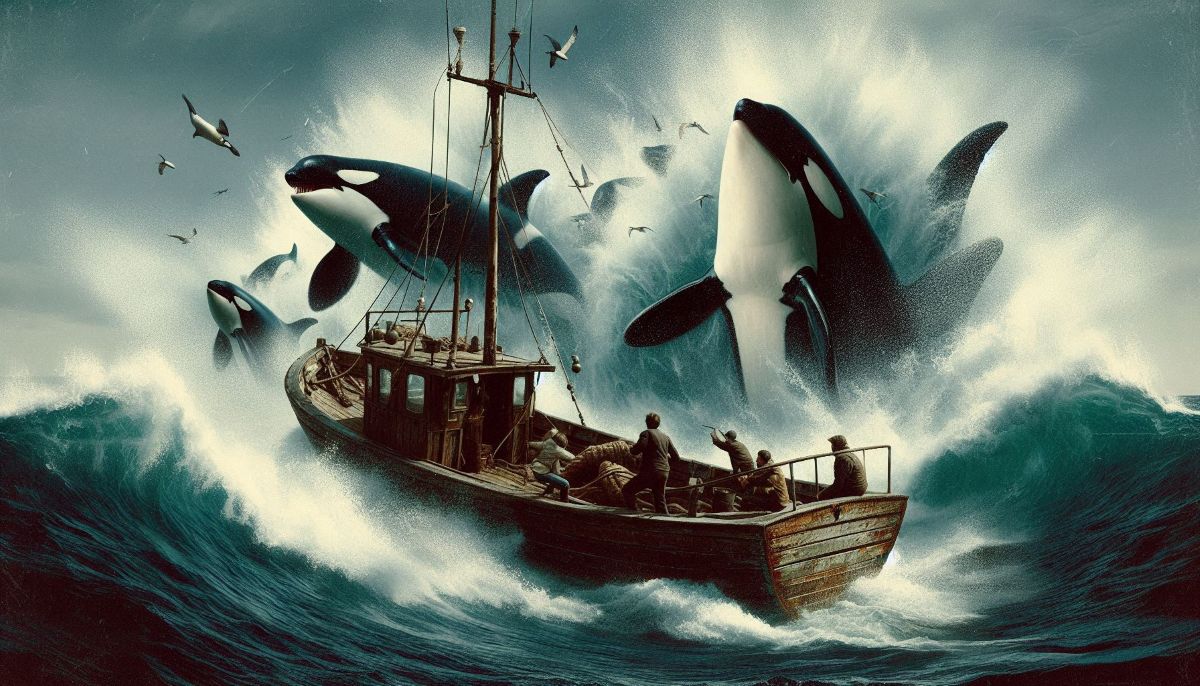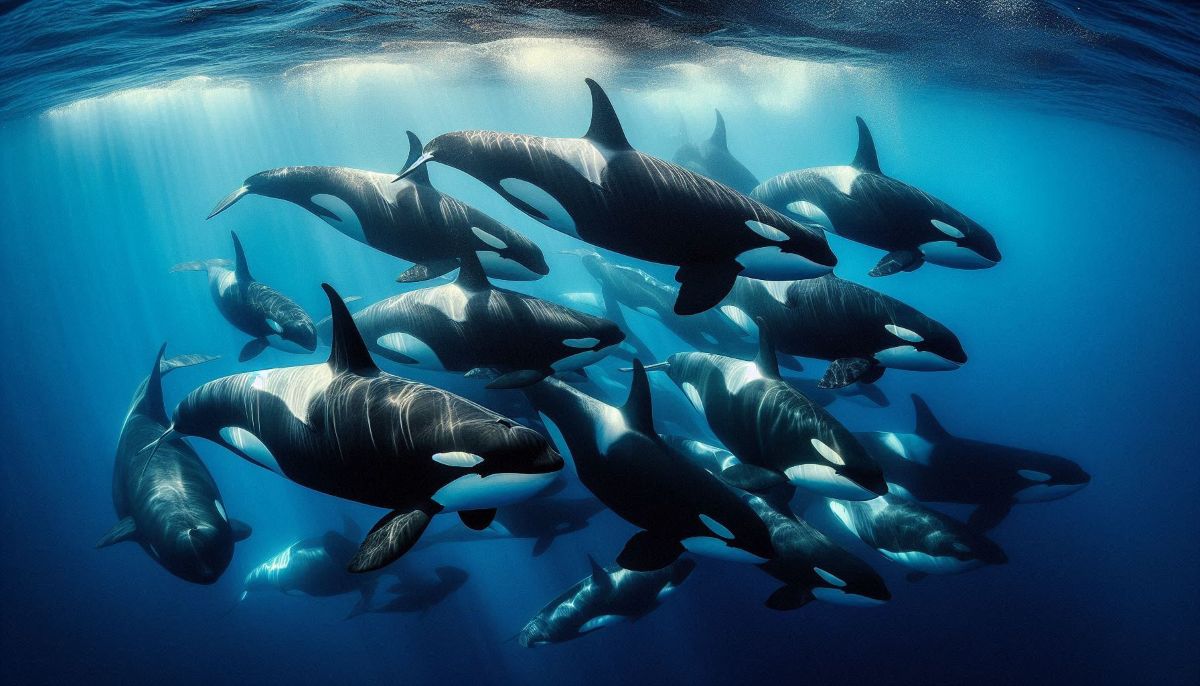
Watch short for this article (5 slides)
Could Orcas Be Strategically Targeting Boats?
Orcas, also known as killer whales, are among the most intelligent creatures in the ocean. Recent incidents where pods of orcas have seemingly "attacked" and sunk yachts in European waters have raised questions: Are these marine mammals acting out of instinct, revenge, or a deeper understanding of their environment?

The idea that orcas are deliberately targeting boats is both fascinating and concerning. While some researchers believe these incidents are developing into learned behavior, others suggest it could merely be playful or exploratory conduct gone too far. In this article, we dive into orca intelligence, social behavior, and what might be driving these rare but alarming encounters at sea.
Orca Intelligence: More Than Just Instinct
Killer whales have demonstrated complex cognitive abilities that rival those of some primates. Their intelligence is evident in several ways:
- Tool Use: Some populations use sponges to protect their snouts while hunting fish near reefs.
- Cooperative Hunting: Orcas work together in coordinated strategies to trap prey, showcasing advanced problem-solving skills.
- Cultural Learning: Distinct orca populations develop unique behaviors and pass them across generations.
If orcas are attacking yachts intentionally, it is possible they are reacting to negative encounters with boats in the past or recognizing threats to their territories.
Have There Been Similar Incidents in the Past?

While the recent aggressive interactions with boats in the Strait of Gibraltar are alarming, they are not the first recorded cases of orcas engaging with human-made vessels.
| Year | Incident | Location |
|---|---|---|
| 1972 | A pod of orcas rammed fishing boats, damaging equipment. | Alaska, USA |
| 1991 | Orcas followed boats closely but did not attack. | Patagonia, Argentina |
| 2020-Present | Multiple yachts sunk or severely damaged by orcas. | Strait of Gibraltar |
With recent encounters leading to boats being rendered inoperable, the question remains: are these orcas sending a message?
Possible Explanations for Orca Attacks on Boats

Researchers have proposed several theories for why these attacks might be escalating:
- Playfulness: Orcas are curious and known to interact with their environment, including floating objects.
- Retribution: It’s possible that at some point, an orca suffered an injury from a vessel, triggering aggressive behavior.
- Disrupted Habitats: Increasing noise pollution and marine traffic could be stressing the pods, making them react more defensively.
- Social Learning: If one orca starts the behavior, others may copy it, believing it is beneficial in some way.
Some scientists have drawn comparisons to elephant revenge behaviors, where elephants attack villages in retaliation for past harm done to their herd. Could killer whales be doing the same?
What Does This Mean for Boaters?
If these behaviors continue, sailors may need to rethink their approach to sharing the seas with orcas. Solutions like noise deterrents or altering navigation routes could help reduce interactions. However, more research is needed to understand the core motivation behind this unusual orca activity.
"Orcas are highly intelligent, social creatures. If they are attacking boats, it is likely for a reason we have yet to fully understand." – Marine Biologist Dr. Rebecca Stanford
Final Thoughts
Whether these incidents are a sign of rising aggression or complex intelligence at work, one thing is certain: orcas continue to surprise us. Their ability to learn, adapt, and communicate suggests that their interactions with boats could be an evolving behavior rather than random occurrences. Understanding these majestic creatures is not just a matter of curiosity—it’s a crucial aspect of coexisting with one of the ocean’s top predators.